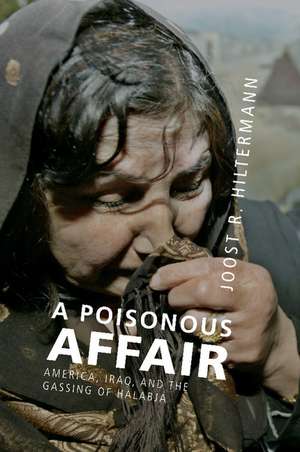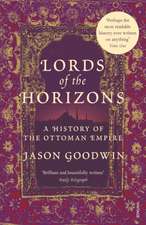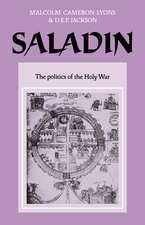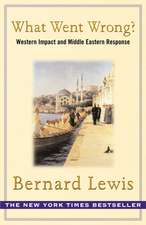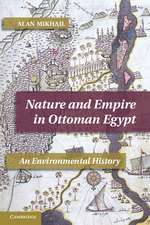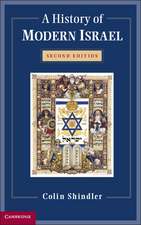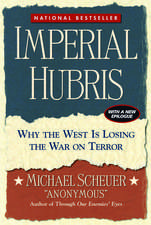A Poisonous Affair: America, Iraq, and the Gassing of Halabja
Autor Joost R. Hiltermannen Limba Engleză Paperback – 26 mar 2014
| Toate formatele și edițiile | Preț | Express |
|---|---|---|
| Paperback (1) | 241.02 lei 43-57 zile | |
| Cambridge University Press – 26 mar 2014 | 241.02 lei 43-57 zile | |
| Hardback (1) | 580.26 lei 43-57 zile | |
| Cambridge University Press – 17 iun 2007 | 580.26 lei 43-57 zile |
Preț: 241.02 lei
Nou
Puncte Express: 362
Preț estimativ în valută:
46.12€ • 48.28$ • 38.16£
46.12€ • 48.28$ • 38.16£
Carte tipărită la comandă
Livrare economică 07-21 aprilie
Preluare comenzi: 021 569.72.76
Specificații
ISBN-13: 9781107666962
ISBN-10: 1107666961
Pagini: 346
Dimensiuni: 152 x 229 x 20 mm
Greutate: 0.51 kg
Editura: Cambridge University Press
Colecția Cambridge University Press
Locul publicării:New York, United States
ISBN-10: 1107666961
Pagini: 346
Dimensiuni: 152 x 229 x 20 mm
Greutate: 0.51 kg
Editura: Cambridge University Press
Colecția Cambridge University Press
Locul publicării:New York, United States
Cuprins
Introduction: the Halabja controversy; 1. Crossing the chemical threshold; 2. Setting the volume control; 3. Chemical interlude; 4. War in Kurdistan; 5. Halabja; 6. The Halabja demonstration effect; 7. Iran and the use of gas; 8. Fixing the evidence; 9. The road to Kuwait; Conclusion: fall-out.
Recenzii
'… comprehensive and powerful delineation not only of what happened that day but of all those who helped bring it about.' Andrew Cockburn, The Nation
'The tragedy of Halabja, and the larger story of Iraqi use of the gas weapon against both Iranians and Kurds in the eighties, leaves the reader with … a sense of desolation. Joost Hiltermann tells the story without recourse to condemnatory prose, all the more effectively for that. Through study of documents, including those newly available after the invasion of Iraq in 2003, and interviews with former Iraqi, Iranian, Kurdish and American officers, politicians, soldiers, and others, he has put together the most complete reconstruction of Halabja, and the events around it we are likely to get. He also explores consequences still with us today.' Martin Woollacott (commentator on international affairs for the Guardian), Frontline Club
'Here is a model of investigative reporting. Hiltermann has tracked down seemingly every available source, weighed conflicting accounts in the record, and provided a dispassionate accounting. His conclusions are that during the Iran-Iraq War Iraq used chemical weapons early and often, whereas Iran essentially did not, if only because it lacked the capacity to do so effectively. … During these war years, the United States, intent on making sure that Iran did not prevail, moved toward ever more active support of Iraq and refrained from any meaningful condemnation of the Iraqi use of chemical weapons. Hiltermann concludes that the fallout of these developments has been an enhanced readiness among states to stock and prepare to use weapons of mass destruction, an Iran set on never again being without such weapons, and a determination by the Kurds to never again be subject to rule from Baghdad.' L. Carl Brown, Foreign Affairs
'Joost R. Hiltermann, a former Human Rights Watch investigator … traces America's current predicament to its collusion with Saddam Hussein during the eight-year Iran-Iraq war in the 1980s and America's silence over his repeated use of chemical weapons.' Washington Post
'Here is a model of investigative reporting.' Foreign Affairs
'The tragedy of Halabja, and the larger story of Iraqi use of the gas weapon against both Iranians and Kurds in the eighties, leaves the reader with … a sense of desolation. Joost Hiltermann tells the story without recourse to condemnatory prose, all the more effectively for that. Through study of documents, including those newly available after the invasion of Iraq in 2003, and interviews with former Iraqi, Iranian, Kurdish and American officers, politicians, soldiers, and others, he has put together the most complete reconstruction of Halabja, and the events around it we are likely to get. He also explores consequences still with us today.' Martin Woollacott (commentator on international affairs for the Guardian), Frontline Club
'Here is a model of investigative reporting. Hiltermann has tracked down seemingly every available source, weighed conflicting accounts in the record, and provided a dispassionate accounting. His conclusions are that during the Iran-Iraq War Iraq used chemical weapons early and often, whereas Iran essentially did not, if only because it lacked the capacity to do so effectively. … During these war years, the United States, intent on making sure that Iran did not prevail, moved toward ever more active support of Iraq and refrained from any meaningful condemnation of the Iraqi use of chemical weapons. Hiltermann concludes that the fallout of these developments has been an enhanced readiness among states to stock and prepare to use weapons of mass destruction, an Iran set on never again being without such weapons, and a determination by the Kurds to never again be subject to rule from Baghdad.' L. Carl Brown, Foreign Affairs
'Joost R. Hiltermann, a former Human Rights Watch investigator … traces America's current predicament to its collusion with Saddam Hussein during the eight-year Iran-Iraq war in the 1980s and America's silence over his repeated use of chemical weapons.' Washington Post
'Here is a model of investigative reporting.' Foreign Affairs
Notă biografică
Descriere
This book examines how America stood by and allowed Saddam's Iraq to amass chemical weapons during the Iran-Iraq war.
